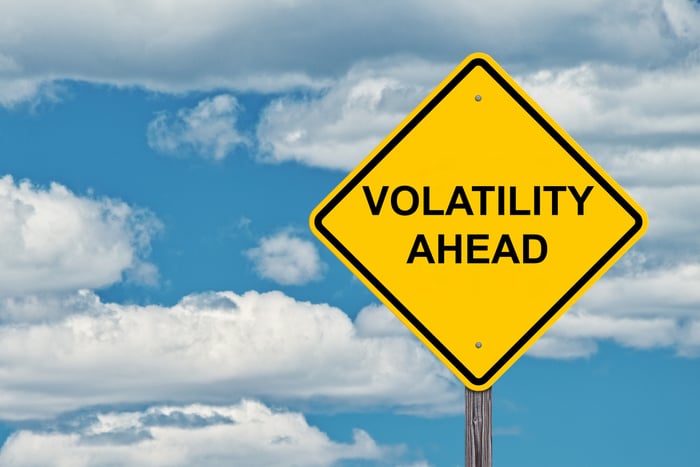If you are looking for a dividend stock, Toronto-Dominion Bank (TD 0.87%) and its 5.4% or so dividend yield might just pop up on your radar screen. After all, the S&P 500 index yields just 1.3% and the average bank about 3%. Any way you cut it, TD Bank's yield is attractive. But there are reasons for the high yield that you need to know before deciding if buying this dividend stock is the best call for you.
The backstory for TD Bank
TD Bank, as Toronto-Dominion Bank is usually called for short, is one of the largest banks in North America, with operations in both its home market of Canada and in the U.S. The bank is the second-largest by deposits in Canada and the sixth-largest overall in North America.

Image source: Getty Images.
Canada is the foundation for the business, with the U.S. market providing growth. In Canada, the banking industry is highly regulated, leading to the largest banks having entrenched industry positions. It's a solid core. The banking industry in the U.S. is highly fragmented, providing ample room for TD Bank to grow. Notably, it's largely located on the East Coast, so there's a lot of geography into which it can expand over time.
So far, this is a pretty solid story -- the bank is investment-grade rated and has a long history of paying dividends (it has paid a dividend continuously since 1857). And it supported its dividend right through the Great Recession, unlike some of the largest U.S. banks.
There are just a couple of problems, one of which is increasingly becoming clear and worrisome.
What's ailing TD Bank?
The first problem that TD Bank is facing is broadly affecting the entire banking industry: rising interest rates. Although higher rates allow banks to charge more for loans, they also end up requiring banks to pay more for deposits. Higher rates can also lead to a slowdown in loan demand while, at the same time, resulting in increased loan defaults as the ability of borrowers to carry loans is pressured by higher interest costs.
This has been an extra problem for Canadian banks. The housing market in Canada was rising rapidly up until rates were increased to help slow down inflation. Key Canadian housing markets have since started to fall. Falling home prices can put extra pressure on borrowers because lower house prices mean that the borrower has less equity in their house and, therefore, may have less reason to keep paying the mortgage.
While the impact of interest rates is something that investors will want to monitor, Wall Street's real worry today with TD Bank is on the regulatory front. In 2023, U.S. regulators scuttled an acquisition that TD Bank had lined up because of concerns about the bank's money-laundering controls. A fine is highly likely, with the bank recently putting aside $450 million in anticipation of just such an outcome.
Rumors have surfaced that this is all tied to a specific situation within the bank's U.S. operations and related to fentanyl smuggling. If that's the case, the $450 million could be just the start of the damage. And even if that covers the fine, other legal issues might come out of this situation. Then there's the fact that TD Bank will probably have to earn back regulator trust before it is allowed to acquire another bank in the U.S. again. TD Bank could be facing a period of significant one-time costs coinciding with slower-than-hoped-for growth. That's not good.
TD Dividend Yield data by YCharts
Should you buy TD Bank?
Although Canadian banks have a history of being run conservatively, thanks to the heightened regulatory environment in Canada, TD Bank is clearly a riskier option than most banks right now. That said, it ended the fiscal first quarter with the third-best Tier 1 Capital Ratio (a measure of how well a bank is prepared for adversity) in North America and it is investment-grade rated. It is highly likely to muddle through this period without too much difficulty. But it probably won't be a particularly rewarding investment over the near term as it works through the regulatory issues it faces.
TD Bank probably isn't appropriate for risk-averse investors given the recent updates on the regulatory matters. However, with a historically high dividend yield, risk-tolerant dividend investors with a long-term focus might find this rough patch is a great time to jump aboard. Just go in knowing that things are going to be a little bumpy over the near term.







